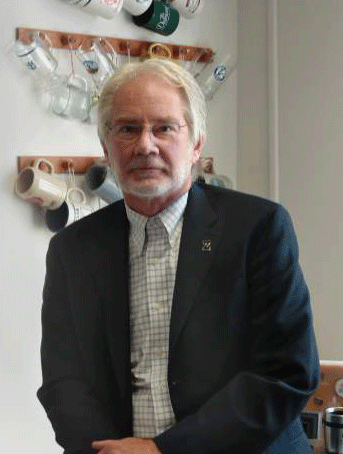Introduction to Cognitive Behavioral Therapy Live Training Details:
When: March 26-27, 2015
Where: Logan, WV
Faculty: Robert Chapman, PhD
Continuing Education Contact Hours: 12
This 2-day training emphasizes that we emotionally react to the world based upon what we tell ourselves about the experiences we have in the world. In short: we feel the way we think. The focus of this training is to prepare participants to understand, changing the way you feel necessitates changing the way you think and with a change in one’s thinking it is appropriate to expect a corresponding change in behavior.
CBT is an evidence-informed best practice that enables practitioners to affect behavior change via a collaborative and interactive partnership with consumers. Designed to enable participants to both understand this process in the first-person as well as affect its delivery clinically. This training approaches participants as individuals as well as practitioners.
Description
Conducted over 2-days with 6-hours of interactive programming each day, this training covers the origins of this approach to behavioral health counseling, its basic tenets, strategies and techniques for delivery, with consideration of its use in various behavioral health scenarios such as substance use disorders, mood disorders, and children’s services. Two popular conceptualizations of the cognitive model of counseling will serve as examples of this approach to counseling: Albert Ellis’ Rational Emotive Behavior Therapy, and Aaron Beck’s Cognitive Therapy.
Participants will have the opportunity to observe the use of this approach to interviewing as well as discuss its usefulness in various settings specific to those attending. They will explore the extent to which their own cognitive distortions may affect their personal thinking and resulting emotional reaction to those thoughts. Further, should there be interest among the participants, the instructor will conduct an actual, albeit optional, CBT-related counseling session with volunteer participants during the evening between the two training days.
Learning Objectives - at the end of this training, participants will...
1. Know the basic tenets of CBT as well as the similarities and differences of Rational-Emotive Behavior Therapy and Cognitive therapy and how they interrelate
2. Know the similarities as well as the differences that exist between more traditional counseling approaches and CBT
3. Be able to recognize “Irrational Beliefs” (Ellis’ terminology) or “Cognitive Distortions” (Beck’s terminology
4. Be able to apply basic, elementary interventions/techniques associated with models of CBT, designed to challenge consumers’ maladaptive self-talk
5. Be able to demonstrate basic skills associated with REBT, Cognitive therapy, or an amalgam of both
Top 5 Reasons to Attend
• To enhance familiarity with CBT as both an approach to counseling as well as an effective evidence-informed best practice for modifying maladaptive behavior
• To better understand these principles, personally, in order to affect self-care and minimize the potential for burnout
• To engender optimism when working with consumers experiencing emotional and behavioral disorders
• To further personal professional development and enhance one’s identity as a behavioral health professional
• To familiarize oneself with an evidence-informed best practice in order to enhance personal counseling effectiveness while at the same time supporting professional colleagues
Top 5 Reasons to Send Your Staff
• Exposure to and “cross pollination with” behavioral health professionals from other disciplines, geographic regions, and experiential/academic backgrounds
• Individual staff professional development and personal well being
• To supplement existing skill levels with an evidence-informed best practices as regards affecting client change with maladaptive emotional distress
• Exposure to training likely to result in strategies and techniques immediately transferable “to the job”
• Time away from the “home office” and its routine during which to pursue personal renewal as well as professional development
Registration
Register now by clicking below! Online registration will remain open until Tuesday, March 24
Members: $350; Non-Members: $450
Please note our cancellation policy: Cancellation and refund requests for conference, program, training and events registrations should be received in writing. Refund payments may take up to six weeks for processing from the date of your refund request. PRA follows the following policy:
- 30 days or more (prior to the course start date): PRA will issue a refund for the registration amount minus a $50 processing fee
- 30 days to one (1) week (prior to the course start date): PRA will issue a refund for the registration minus a $100 processing fee
- Within one (1) week of the program start date: No refunds will be provided within one (1) week of the start of the course
- Substitutions can be made prior to the start of the live event at no additional cost/fee. Please send your substitutions requests to info@psychrehabassociation.org.
Faculty

Robert J. Chapman, PhD
Dr. Chapman is an experienced practitioner, trainer, and program consultant in the area of alcohol and other drug (AOD) services. He has developed and implemented AOD programs for both the in-patient and intensive out-patient treatment of alcohol and other drug dependence as well as developing and coordinating community based programs in higher education and for the Seneca Nation of Indians.
As a Counselor Educator, Dr. Chapman has been involved in the undergraduate and graduate education of counselors and human service professionals as an adjunct member the faculties at the State University of New York, Binghamton; La Salle, Temple, and St. Joseph's Universities in Philadelphia; and Eastern College in St. Davids, Pennsylvania. He received his Ph.D. in Counselor Education from Syracuse University and a Masters of Science in Education with a concentration in Counseling Psychology from St. Bonaventure University in Olean, New York. He is currently a Clinical Associate Professor of Behavioral Health Counseling at Drexel University in Philadelphia.
Dr. Chapman is a past-president of the New York State Council on Alcoholism, past member of the N.Y. Federation of Alcoholism Counselors and present member of the American Counseling Association and American College Counselors Association. He has written and lectured on the topics of cultural sensitivity in counseling, AOD programming for higher education, effective supervision of addiction counselors, and spirituality in the treatment of addictions.


